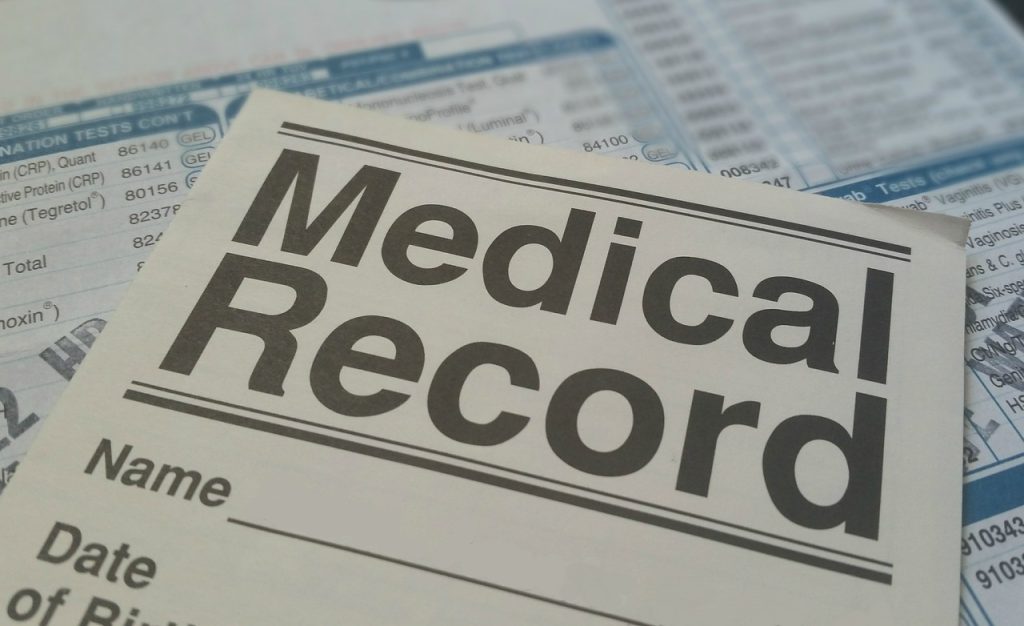A Comprehensive Guide from AccidentDoctor.org
You’ve just experienced a car accident. Your vehicle may be damaged, your nerves are rattled, and you’re questioning whether you need medical attention, especially if you don’t feel severely injured. This critical decision could significantly impact both your health recovery and any potential compensation you might receive. At AccidentDoctor.org, we’ve helped countless accident victims understand the crucial connection between prompt medical care and successful personal injury claims.
The Foundation: Why Medical Documentation Is Everything

Here’s a hard truth that many accident victims learn too late: without proper medical documentation, you essentially have no personal injury case. Insurance companies, attorneys, and courts don’t operate on sympathy or your word alone—they demand concrete medical evidence.
This documentation serves two critical purposes:
- Immediate protection Ensures you receive appropriate medical care before injuries worsen
- Legal evidence: Provides your personal injury attorney with the documented proof needed to build a compelling case
Think of medical records as the foundation of your entire claim. Without this foundation, even the most skilled attorney cannot build a strong case for compensation. As we often tell clients at AccidentDoctor.org, “No documentation means no case.”
The “Hidden Injury” Problem Most Victims Don’t Know About
One of the most dangerous misconceptions accident victims have is assuming they’re fine because they don’t feel pain immediately after the crash. This thinking has cost countless people both their health and their legal rights.
Why You Can’t Feel Injuries Right Away:
- Adrenaline surge: Your body’s natural fight-or-flight response masks pain
- Shock: Psychological trauma can delay physical pain recognition
- Inflammation process: Many injuries take 24-72 hours to fully manifest
Common Delayed-Onset Injuries Include:
Whiplash and Soft Tissue Injuries These injuries are common in car accidents and often don’t show symptoms for 1-3 days. The sudden jerking motion of your head and neck during impact can damage muscles, ligaments, and tendons that won’t hurt until inflammation sets in.
Concussions and Brain Injuries Head trauma symptoms frequently appear gradually over several days, including:
- Headaches that worsen over time
- Difficulty concentrating
- Memory problems
- Mood changes

Internal Injuries These can be life-threatening and may not cause immediate pain. Only proper medical examinations can detect internal bleeding or organ damage.
Spinal Disc Problems Herniated or bulging discs often cause delayed back pain that can become chronic without proper treatment.
This is precisely why medical professionals and legal experts recommend seeking medical attention within 24-48 hours of any accident, regardless of how you feel initially.
How Different Healthcare Providers Impact Your Case Value
While all medical care is valuable for your health, not all medical documentation carries equal weight in personal injury cases. Understanding these differences can help you make strategic decisions about your care.
Medical Doctors (MDs): Maximum Legal Credibility
Medical doctors provide the strongest foundation for personal injury cases because they:
- Order comprehensive diagnostic tests (X-rays, MRIs, CT scans)
- Create detailed medical reports that courts and insurance company’s respect
- Can prescribe medications and recommend surgical interventions
- Refer to specialists when needed
The Challenge: Many MDs work primarily with health insurance rather than personal injury cases. However, some states with Personal Injury Protection (PIP) laws make MD access easier for accident victims.
Specialists: Adding Expertise and Credibility
Depending on your specific injuries, specialists can significantly strengthen your case:
Orthopedic Surgeons
- Essential for bone, joint, and severe musculoskeletal injuries
- Can perform surgeries if necessary
- Their reports carry substantial weight in high-value cases
Neurologists
- Critical for head injuries, spine problems, and nerve damage
- Can diagnose complex conditions like traumatic brain injury
- Essential when cognitive or neurological symptoms are present
Pain Management Specialists
- Important for documenting chronic pain conditions
- Provide ongoing treatment plans that show long-term impact
- Help establish the permanency of your injuries
Alternative Healthcare: Effective Treatment with Strategic Considerations
These treatments are effective for many accident-related injuries, but may face more scrutiny from insurance adjusters:

Chiropractic Care
Chiropractors excel at treating spinal injuries, soft tissue damage, and providing drug-free pain management. They’re particularly skilled at treating the neck and back injuries that commonly result from car accidents. While some insurance adjusters may initially undervalue chiropractic care, when properly documented and combined with MD evaluations, it can be highly effective for both recovery and legal purposes.
Physical Therapy
Physical therapists help restore mobility, reduce pain, and prevent long-term disability. Their detailed treatment notes documenting your progress (or lack thereof) provide valuable evidence of your injury’s impact on daily functioning.
Massage Therapy
As one of the oldest forms of pain relief, massage therapy is commonly used to treat soft tissue injuries from auto accidents. While effective for healing, massage therapy documentation typically carries less weight in legal proceedings unless prescribed by an MD.
Strategic Approach: Building the Strongest Medical Case
To maximize both your recovery and potential compensation, follow this strategic timeline:
First 48 Hours: Critical Foundation Period
- Emergency room or urgent care if you have any immediate symptoms
- Primary care physician for comprehensive baseline examination
- Document everything: Photograph visible injuries, save all medical records
- Follow all medical advice religiously from day one

Weeks 2-4: Comprehensive Evaluation Phase
- Attend all follow-up appointments without exception
- See specialists if referred—don’t delay these appointments
- Begin appropriate therapy (physical therapy, chiropractic care) as recommended
- Keep detailed symptom diary noting pain levels and daily activity limitations
Ongoing Treatment: Consistency Is Key
- Don’t stop treatment prematurely even if you feel better
- Maintain regular appointments to avoid gaps in your medical records
- Follow through with all prescribed treatments to show good faith effort
- Communicate openly with all healthcare providers about your symptoms
Common Mistakes That Can Destroy Your Claim
Mistake #1: Waiting “To See How You Feel”
Why it’s dangerous: Creates gaps that insurance companies exploit, suggesting injuries aren’t serious or aren’t related to the accident.
Mistake #2: Skipping Appointments
Why it’s dangerous: Inconsistent care suggests you’re not really injured or don’t take your injuries seriously.
Mistake #3: Not Following Medical Advice
Why it’s dangerous: Insurance companies argue that if you won’t follow treatment recommendations, your injuries must not be that severe.
Mistake #4: Stopping Treatment Too Early
Why it’s dangerous: Ending treatment before full recovery can significantly undervalue your claim and leave you with long-term problems.
Do You Have a Case if You’re Not Actually Injured?
Personal injury cases are fundamentally based on documented injury. If medical examination reveals no injuries related to your accident, you likely don’t have a personal injury claim. However, seeking medical attention still provides important benefits:
- Peace of mind knowing you’re truly uninjured
- Protection against delayed-onset symptoms
- Documentation showing you acted responsibly after the accident
- Health security ensuring no hidden injuries were missed
While other factors like property damage, lost wages due to car repairs, or rental car costs might be recoverable, injury documentation remains the cornerstone of any significant personal injury compensation.
Will Seeing a Doctor Guarantee a Settlement?
Simply seeing a doctor does not guarantee a settlement. Insurance company’s base settlements on several factors:
- Documented injuries related to the accident
- Medical expenses incurred for treatment
- Lost wages due to injury-related work absence
- Pain and suffering supported by medical evidence
- Future medical needs projected by healthcare providers
If medical examination finds no evidence of injury related to your accident, your chances of receiving personal injury compensation are minimal. Insurance companies won’t pay for injuries that don’t exist, which is why honest, thorough medical evaluation is essential.
Fraudulent Claims: Serious Risks You Must Avoid
Insurance fraud is a serious crime with severe consequences including:
- Criminal charges potentially resulting in jail time
- Heavy fines and required restitution payments
- Permanent criminal record affecting employment and housing opportunities
- Increased insurance costs for everyone
Modern medical technology makes it extremely difficult to fabricate injuries. Doctors use sophisticated diagnostic tools including MRI, CT scans, X-rays, and detailed physical examinations to verify injury claims. The legal and financial risks of fraudulent claims far outweigh any potential benefits.

Timeline Matters: The Value of Quick Medical Attention
Immediate Benefits of Prompt Care:
- Ensures injuries receive treatment before they worsen
- Creates clear medical connection between the accident and injuries
- Prevents insurance arguments that injuries occurred elsewhere
- Demonstrates how you took the incident seriously
- Provides baseline documentation for future comparison
Consequences of Delayed Medical Care:
- Insurance adjusters may argue injuries aren’t accident-related
- Gaps in medical records significantly weaken your case
- Injuries may worsen without proper early intervention
- May appear you weren’t genuinely hurt in the accident
- Reduces overall settlement value potential
Real-World Impact: What This Means for Your Settlement
The difference between prompt, comprehensive medical care and delayed or minimal treatment can be thousands of dollars in settlement value. Here’s why:
Strong Medical Documentation Leads To:
- Higher settlement offers from insurance companies
- Stronger negotiating position for your attorney
- Better chance of fair compensation for pain and suffering
- Documentation supporting future medical needs
- Clear evidence of accident-related injuries
Poor Medical Documentation Results In:
- Lower settlement offers or case dismissal
- Insurance company disputes about injury severity
- Difficulty proving injuries are accident-related
- Reduced compensation for ongoing problems
- Weak legal position overall
Your Next Steps: Protecting Your Health and Rights
If you’ve been in an accident, don’t gamble with your health or your legal rights. Here’s what you should do immediately:
- Seek medical attention within 24-48 hours regardless of how you feel
- Follow all treatment recommendations from your healthcare providers
- Keep detailed records of all medical appointments and treatments
- Document your symptoms and how they affect your daily life
- Don’t give recorded statements to insurance companies without legal advice
At Accident Doctor, we specialize in connecting accident victims with qualified healthcare providers who understand the unique needs of personal injury cases. Our network includes medical doctors, specialists, chiropractors, and physical therapists experienced in treating accident-related injuries and providing the documentation needed for successful legal claims.
Remember: insurance companies have teams of lawyers and adjusters working to minimize your claim. Your best defense is comprehensive medical documentation that clearly establishes your injuries and their impact on your life.
Don’t wait, your health and your legal rights depend on the actions you take right now.
For more information about auto accident injury treatment options or to find qualified healthcare providers in your area, visit AccidentDoctor.org today. Your future recovery, both physical and financial, may depend on the medical decisions you make in the hours and days following your accident.
AccidentDoctor.org connects accident victims with qualified healthcare providers specializing in personal injury cases. We understand both the medical and legal aspects of accident recovery, helping you get the care you need while protecting your rights to fair compensation.

 Since 2012,
Since 2012, 

